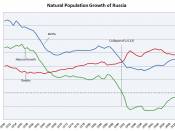MANAGEMENT ASSIGNMENT
Management of an ecological dilemma
Warning world population trends
''Continuing population growth poses a great risk to humanity, '' "In our judgement, humanity's ability to deal successfully with its social, economic, and environmental problems will require the achievement of zero population growth within the lifetime of our children.''
One of the emerging issues of the 21st century is "to explore in greater detail the complex and interrelated issues of population growth, resource consumption, socioeconomic development, and environmental protection.''
TABLE OF CONTENT
THE GROWING WORLD POPULATION3
KEY DETERMINANTS OF POPULATION GROWTH5
ENVIRONMENTAL STRESS5
THE EARTH IS FINITE7
QUALITY OF LIFE AND THE ENVIRONMENT7
HUMAN REPRODUCTIVE HEALTH8
SUSTAINABILITY OF THE NATURAL WORLD IS EVERYONE'S RESPONSIBILITY9
CONTRIBUTION OF SCIENCE AND TECHNOLOGY10
Alternative management styles10
ACTION IS NEEDED NOW11
CAUSES AND SOLUTIONS12
AFRICA, THE LIVING EXAMPLE13
APPENDIX THOUGHTS14
REFERENCE LIST15
The growing world population
The world is in the midst of an unprecedented expansion of human numbers.
It took hundreds of thousands of years for our species to reach a population level of 10 million, only 10,000 years ago. This number grew to 100 million people about 2,000 years ago and to 2.5 billion by 1950. Within less than the span of a single lifetime, it has more than doubled to 6.4 billion in 2002.
This accelerated population growth resulted from rapidly lowered death rates (particularly infant and child mortality rates) combined with sustained high birth rates. Success in reducing death rates is attributable to several factors: increases in food production and distribution, improvements in public health (water and sanitation) and in medical technology (vaccines and antibiotics), along with gains in education and standards of living within many developing nations.
Over the last 30 years, many regions of the world have also dramatically reduced birth rates. Some have already achieved family...



Nice
Nice work boy, it really helped me out in my studies since I am doing a big study in these and related topics. I really liked how you emphasized the ecological problems of today.
6 out of 6 people found this comment useful.